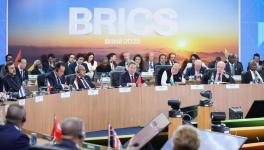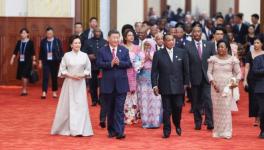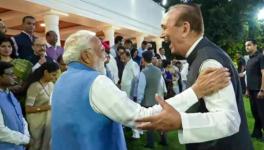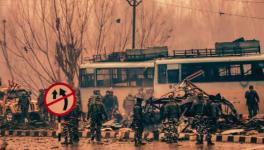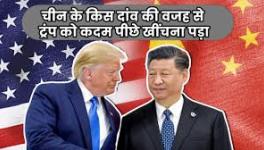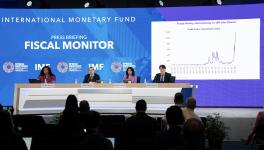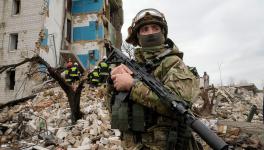Ahead of G7 Meet on Afghanistan, China Says Sanctions Against Taliban not Productive
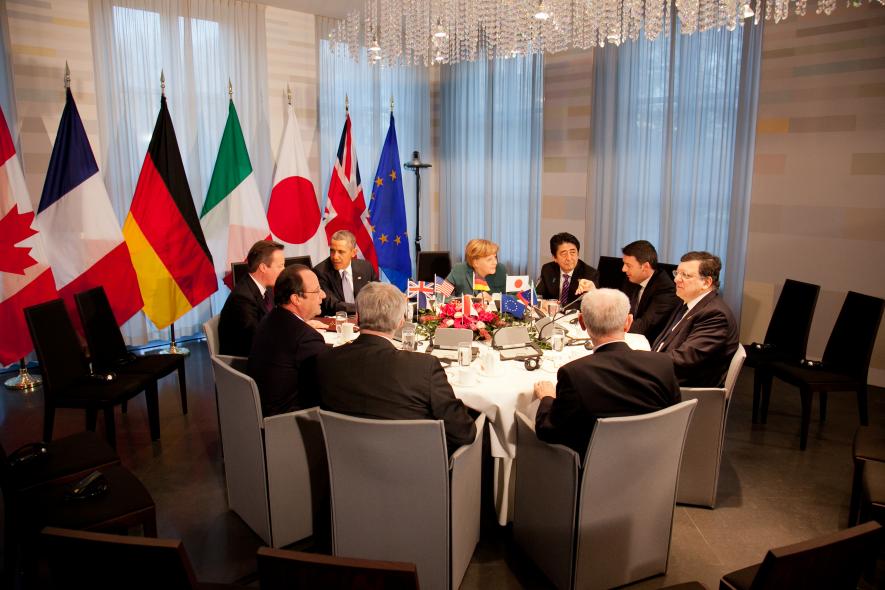
Representational image. | Image Courtesy: Wikimedia Commons
Beijing: As the leaders of the G7 countries are set to meet on Tuesday to discuss the Afghan crisis and possible economic sanctions against the Taliban, China expressed reservations over imposing penalties, saying the US and its allies should learn lessons from the past and act prudently.
The Group of Seven leaders from Canada, France, Germany, Italy, Japan and the United States are due to hold a virtual meeting on Tuesday to discuss the situation arising after Taliban’s takeover of Afghanistan and coordinate international response to the crisis.
Ahead of the meeting, British Prime Minister Boris Johnson, who will chair the emergency G7 virtual meet to coordinate international response to the Afghan crisis, said the Taliban will be judged by its deeds rather than words.
The Taliban seized power in Afghanistan on August 15, two weeks before the US was set to complete its troop withdrawal after a costly two-decade war.
Downing Street said on Monday that during the meeting on Tuesday, Johnson will call on G7 leaders to continue to stand by the Afghan people and step up support for refugees and humanitarian aid.
He is expected to urge international partners to match the UK's commitments on aid and the resettlement of those most in need in order to protect human rights and contribute to the stability of the region.
Asked for his reaction on G7 leaders' plan to impose new sanctions on the Taliban, Chinese Foreign Ministry spokesman Wang Wenbin told a media briefing here that imposing sanctions and applying pressure will not solve problems.
“Afghanistan is an independent sovereign state. The US and its allies should learn lessons from the past and do some soul searching and act prudently on Afghanistan related issues," he said.
“Any wanton sanctions and pressuring will not solve the problem. We believe that while advancing the peace and reconstruction and transition in Afghanistan, the international community should think about how to prevent military intervention under the pretext of democracy," he said.
“We should not allow the repeat of a tragedy where a certain country made mistakes but the Afghan people and the international community and especially regional countries paid the price," he said, in an apparent reference to the US intervention in Afghanistan 20 years back and its hasty withdrawal of troops.
On Monday, Wang hinted at China stepping up financial assistance to Taliban-controlled Afghanistan, saying it will play a “positive role” in helping the war-ravaged country amid global pushback to stop funding to Kabul until the Afghan militant group modified its hardline religious policies.
Asked for his reaction to comments by Afghanistan’s exiled central bank chief stating that Taliban may go to China and Pakistan to replace the US for financial assistance, Wang while criticising the US actions in Afghanistan said, “China always pursues a friendly policy toward the entire Afghan people”.
“For a long time, China has provided much assistance in economic and social development in Afghanistan. China stands ready to continue to play an active role in promoting peace and reconstruction in Afghanistan and helping the nation to enhance the ability to achieve self-development and improve people's livelihood," he said.
In London, Johnson said: "Our first priority is to complete the evacuation of our citizens and those Afghans who have assisted our efforts over the last 20 years – but as we look ahead to the next phase, it's vital we come together as an international community and agree a joint approach for the longer term," said Johnson.
"That's why I've called an emergency meeting of the G7 – to coordinate our response to the immediate crisis, to reaffirm our commitment to the Afghan people, and to ask our international partners to match the UK’s commitments to support those in need.
According to a Downing Street communique, the leaders of the world's seven major industrialised democracies are expected to reiterate their commitment to safeguarding the gains made in Afghanistan over the last 20 years – in particular on girls’ education and the rights of women and minorities.
Discussions are set to cover the ongoing collaboration on evacuation efforts at the Kabul airport and the longer-term work to secure a more stable future for Afghanistan and ensure any new government is inclusive and abides by its international obligations.
The meeting will take place by video conference and the NATO and UN Secretaries-General Antonio Guterres have also been invited to join the discussion.
“The leaders agreed to continue working together to ensure those who are eligible to leave are able to, including after the initial phase of the evacuation has ended,” a Downing Street spokesperson said.
The leaders agreed on the importance of “concerted diplomatic engagement” to prevent a humanitarian crisis in Afghanistan.
Earlier, Johnson set out his five-point plan for addressing the risk of a humanitarian crisis in Afghanistan.
The plan has five parts: immediately helping those to whom we have direct obligations; protecting ourselves against any threat from terrorism; supporting Afghan people in the region through humanitarian and development assistance; creating safe and legal routes to resettle Afghans in need; and developing a clear plan for dealing with the new Afghan regime in a unified and concerted way.
The UK says it has already doubled the amount of humanitarian aid to the region, committing up to 286 million pounds with an immediate effect.
Last week, it announced a new bespoke resettlement scheme for around 20,000 vulnerable Afghans over the coming years.
Get the latest reports & analysis with people's perspective on Protests, movements & deep analytical videos, discussions of the current affairs in your Telegram app. Subscribe to NewsClick's Telegram channel & get Real-Time updates on stories, as they get published on our website.









